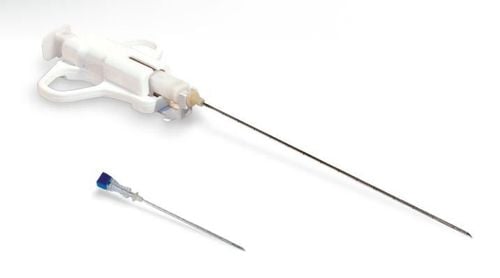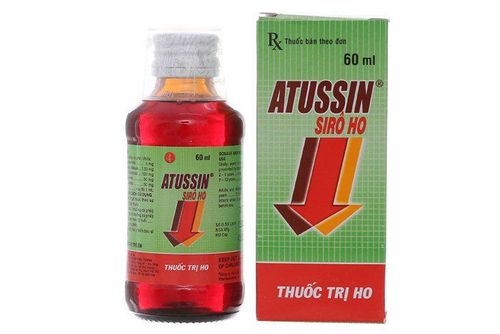This is an automatically translated article.
The article was professionally consulted with Specialist Doctor II Nguyen Van Thai - Ear, Nose Throat Doctor - Department of Medical Examination & Internal Medicine - Vinmec Danang International General Hospital.Laryngitis hoarseness is usually caused by a cold in the upper respiratory tract. Treatment of laryngitis is mainly taking pain relievers, anti-inflammatory drugs, drinking lots of water and taking time to rest.
1. Laryngitis
Laryngitis is an overuse, irritation, or infection of the larynx that leads to inflammation. The vocal cords have two folds of mucous membrane that cover muscle and cartilage. Normally, the vocal cords open and close smoothly, forming sound through movement and vibration.When the vocal cords are over-stimulated, it leads to laryngitis. The inflammation distorts the sound produced by air passing through the vocal cords. As a result, your voice becomes hoarse. In some cases of severe laryngitis, the person's voice is almost inaudible (mute).
Acute laryngitis can be short-term or long-lasting (chronic). Most cases of laryngitis are caused by a temporary viral infection or overuse of the voice and are not serious. However, persistent hoarseness sometimes signals a more serious underlying medical condition.

2. When to see a doctor?
Laryngitis in adults is usually not serious, but you should see your doctor if you have hoarseness for more than 2 weeks, accompanied by coughing up blood, a fever above 39.4 degrees Celsius, or difficulty breathing.Laryngitis in children can be very serious. Therefore, parents need to continuously monitor the baby's temperature and take them to the doctor if:
● The infant is younger than 3 months old and the temperature is higher than 37.7 degrees Celsius;
● Children older than 3 months with a fever of 38.8 degrees Celsius or higher;
● Your baby has trouble swallowing or breathing;
Make high-pitched sounds when inhaling;
Drooling more than usual.
In children, laryngitis can lead to spasms, narrowing of the airways, or inflammation of the epiglottis at the larynx and top of the larynx. The complications that follow are life-threatening, so hoarse laryngitis should be treated urgently if you or your young child begins to gasp or becomes short of breath.
3. Diagnosis and treatment
3.1. Diagnose
The most common sign of laryngitis is hoarseness. Changes in your voice can vary with the degree of infection or irritation, from mild hoarseness to near complete loss of your voice. If you have chronic hoarseness, your doctor will need to listen to your voice and examine your vocal cords.● Laryngoscopy
● Biopsy
If suspicious, your doctor may recommend a biopsy by removing a sample of tissue to examine under a microscope.

3.2. Treatment
Acute laryngitis usually clears up on its own within a week or so, during which time you can use self-help remedies for hoarseness and home care to help improve symptoms.For chronic laryngitis, the aim of these treatments is to target the underlying cause, such as heartburn, smoking or alcohol abuse.
Medicines will be used in the following cases:
● Antibiotics: Most antibiotics will not work because the cause of laryngitis is usually a virus. But if you have a bacterial infection, your doctor may prescribe antibiotics.
● Corticosteroids: Works to help reduce inflammation of the vocal cords. However, this method of treatment is only applied when there is an urgent need to cure hoarse laryngitis. For example, you need to use your voice or words to present important events, or in the case of a toddler with acute croup.
3.3. Note before visiting the doctor
You can go to any medical facility for a general examination before being referred to an ear, nose, and throat specialist if necessary.Here are some tips to help you get ready for your visit:
● If you have an appointment, ask the staff what you need to prepare;
● Write down all the symptoms you have experienced, including those that seem unrelated to vocal cord inflammation;
● Rewrite important personal information, including recent stressful events or major life changes;
● Make a list of all medications, vitamins and supplements you are taking;
● If possible, bring along a family member or friend to remind you of useful information that has been forgotten or missed;
● Write down the questions that need to be consulted with the doctor.
4. Lifestyle and home remedies
Some self-care and home remedies can cure hoarse laryngitis for your voice, such as:● Inhale moist air: Use a humidifier to keep the air indoors or The office is not too dry. If you don't have a nebulizer, you can also use a menthol vaporizer or a hot shower instead;
● Rest, keep the voice as much as possible. Avoid talking or singing too loud and for too long. If you need to speak in front of a crowd, consider using microphones and speakers;
● Drink plenty of water to avoid dehydration, but limit alcohol and caffeine.
● Moisten and disinfect your throat with lozenges containing herbs such as eucalyptus and mint, gargle with salt water or chew gum.
● Do not use decongestants as they can dry out your throat.
● Avoid whispering as this puts even more stress on your vocal cords than in a normal voice.
Usually, viral laryngitis will go away after a few weeks and you can apply some care and rest at home until it is completely cured. However, in cases where laryngitis occurs in children, or is severe and requires urgent treatment to regain voice before important events, the patient should seek medical attention. cure laryngitis hoarseness to quickly recover.
Otorhinolaryngology - Vinmec International General Hospital is an address specializing in the examination and treatment of common ENT diseases, head and neck tumors, congenital malformations in the ear, nose and throat area with the help of medical devices. Common surgical methods such as surgery, microscopic or endoscopic atrial patching, fistula removal, Bondy surgery, nasopharyngeal aerosol, nasal septum, nasal coil burning...
BSCK II Nguyen Van Thai Nguyen is a Doctor of Otolaryngology and Head and Neck Surgery at the Department of Otolaryngology - Hue Central Hospital with more than 17 years of treatment experience, especially in the field of Head and Neck Surgery. Currently, he is an Otolaryngologist at the Inter-Specialist Clinic of the Department of Medical Examination and Internal Medicine, Vinmec Da Nang International General Hospital.
Please dial HOTLINE for more information or register for an appointment HERE. Download MyVinmec app to make appointments faster and to manage your bookings easily.
References: Mayoclinic.org; Webmd.com














